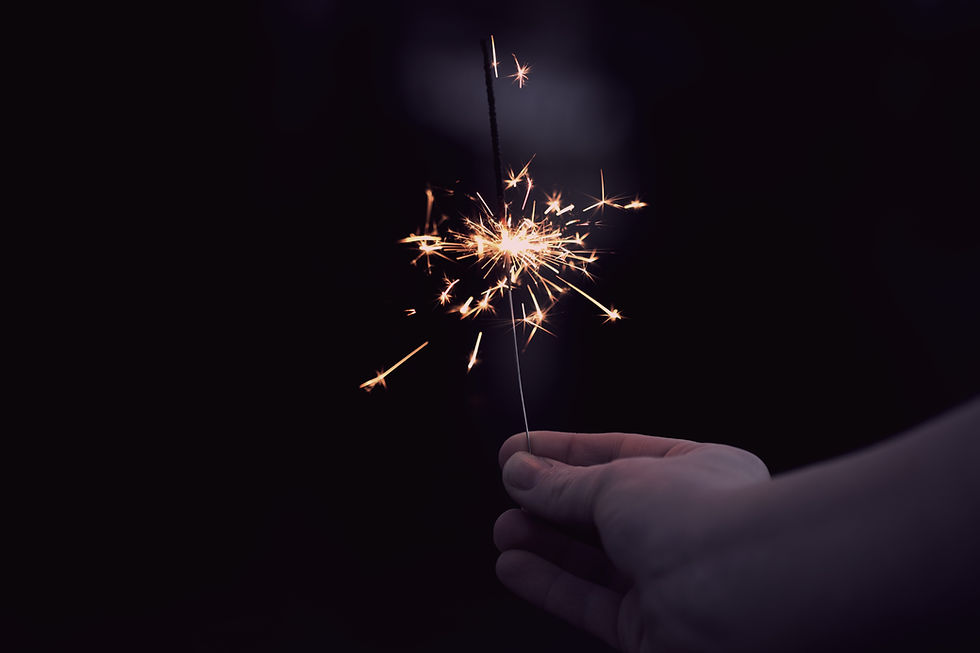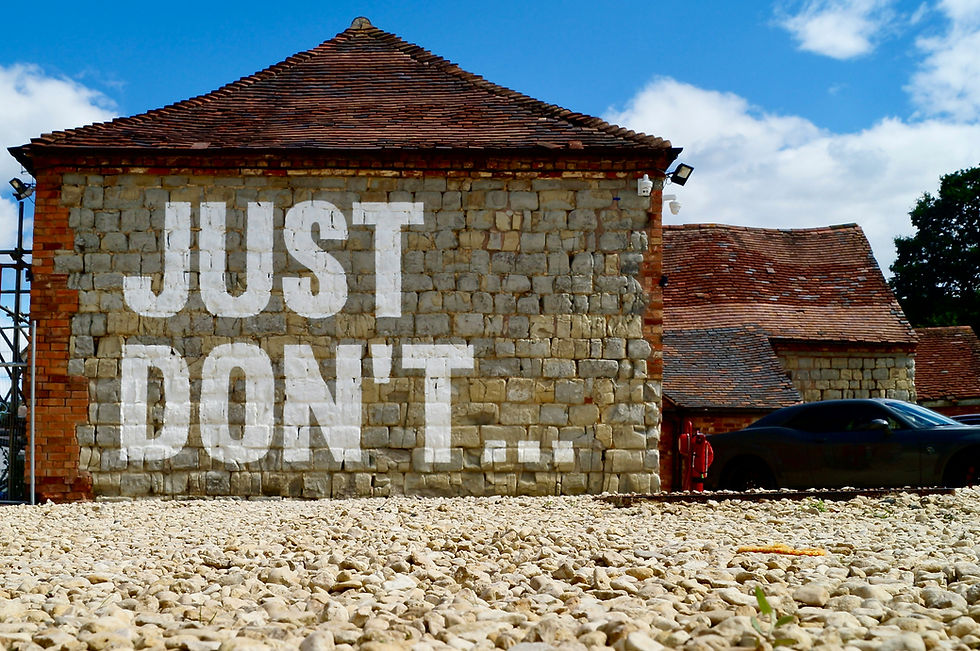I’m Not Going To Convince You Racism Exists
- Jessica Kiragu
- Dec 30, 2022
- 5 min read
Updated: Jan 11, 2023
I probably wouldn’t be able to, if I tried. But I’d like to know — those of us who don’t see racism or who feel an urge to explain it away when others point it out to us — why is that? What knowledge or experience are we relying on that’s convinced us we aren’t surrounded by racial disparity?

I ask because, for much of my life, denial was my response to racism. I never asked myself why and felt no need to be curious about race and racism. In fact, this sort of questioning or hint of discussion, stressed me out.
I was so caught up in the American idea of “innocent until proven guilty,” intermingled with a need for whiteness to be unsullied, that I neglected to consider we’d been guilty of racism from the start. I couldn’t and didn’t want to see that our country’s economic and social structure was built upon racism. That racism hadn’t gone anywhere and my denying it keeps racism alive.
There wasn’t much in my mostly white environment to challenge me on this. Explaining away and denial were the responses of other white people in my life too. We, my white community and I, held tightly to this belief and it seemed, no one and nothing could dissuade us. The problem with this, we had no real reason — no experience or knowledge — to back up our denial of racism and surety of white innocence.
So, what did it take for me to begin seeing racism, albeit not very well? I needed, and continue to need, to sit with race, recognize whiteness, and answer why I could so easily deny racism. I had to get curious with my certainty. I had to work out why I felt I needed to be sure of racism’s nonexistence.
Answering for these things hasn’t been fun. It’s meant acknowledging that the whiteness I share in, tells white folk that we’re the experts. That it’s ok for us to ignore the lived truths of others and negate racism — even though we don’t experience racism and even though there’s much evidence to support the contrary. And the impulse to explain racism away, I learned that from whiteness too. It’s a practice so ingrained in me and in the white people that I know. It’s reinforced too in how we are with race and with one another.
And here’s where I stand now. From what I can tell, we, in the US, are all part of a social structure organized around race (I specify America because I’ve only lived in the United States). Racism is alive and well, I’ve come to see that there’s too much evidence for me to believe otherwise. Google has been, and continues to be, a great friend in making information about racism available to everyone. Acknowledging that racism continues on and that we’re all entangled in it, is a bitter pill for a lot of us white folks to swallow, but it’s one necessary for healing and liberation.
Racial imbalance is everywhere in our country — it’s in who holds the most wealth, which babies and mothers have the highest mortality rates, which children most grow up in poverty, who’s graduating from high school and attending college, who holds the offices of government that are meant to represent all of us, who is most incarcerated, and who receives the longest prison sentences. These are only some of the places where we see how white people have historically, and presently continue, to reap benefits not afforded others. Here is our culpability.
So yes, I did just present fodder for the existence of America’s problem with racism. By most accounts, it looks like, for white people in the United States, our skin color advantages us or, at least, isn’t making our lives more difficult. But I’m still not here to convince anyone that a racial hierarchy exists and that this skin color stratification impacts all of us. Proving the existence of racism and white dominance is a waste of time and energy, because it’s already been proven. It exists and I’d rather put energy towards taking it apart.
And that’s where my question comes in. For those who deny it’s existence, what makes it hard for us to accept that racism is real? What tells us that the belief racism has ended, is true? I don’t have an answer — as in I’m not sure one person can answer this for another. I don’t think that it helps anyone understand themself and how they interact with the world, for me — or anyone else who’s not that person — to dictate the precise way to go about this.
It’s a necessary and, ultimately, rewarding journey. A deep dive into self and other — developing a skill set of piecing together the way race intersects with our everyday life. This is the work that we — white folks — would truly benefit from. I say this because denying what’s right in front of us, even though there’s direct material proving it’s existence, that isn’t good for us. It’s also more worthwhile to pursue truth and dispel false narratives, than it is to chase after whiteness.
Growing our ability to be curious about our racial understanding, is freeing. Being ok with not knowing and with asking, how do I know what I know about race, releases us from having to already have it figured out. Asking, how do I understand race and how did I come to this understanding, opens us up to new pathways for believing, doing, and for being. Interrogating how we perceive ourselves as white people and digging into what we’ve been told about where and from whom we come, lets us make meaning of how we’re racialized beings, in a racialized world.
This journey is constructive. It’s about building us all up and taking apart racism and the ways we participate in it. It’s not about tearing white people or anyone down, but about freeing everyone from the restrictive ways that whiteness and racism keep us tethered. And it’s important work. Especially, when we struggle to see issues with race without the aid of others.
We do this individual work, and we do the interpersonal and communal work. We figure out how being racialized as white impacts us, because there’s no question, it does. We do our own inner work in relationship and with community. Not expecting others to tell us what to do, but listening for clues as to how others have gone about it, integrating greater awareness, proven practices and effective actions into our effort, and digging deep for real, lasting change.
We’re about to enter a new year and I invite you to join me in this resolution. In 2023, let’s agree that racism exists and that — in different ways — we’re all touched by it. And, let’s undo it. If there’s lingering doubts to dispel, let’s review the data that others have already gathered and let’s bring other white people along with us. Then, let’s extend care to one another and heal together. I believe we can do it and that we, and 2023, will be better for it.
If you’d like a jumpstart, here’s some books and here’s a collection of other forms of media that I’ve found helpful. Happy New Year, friends.




Comments